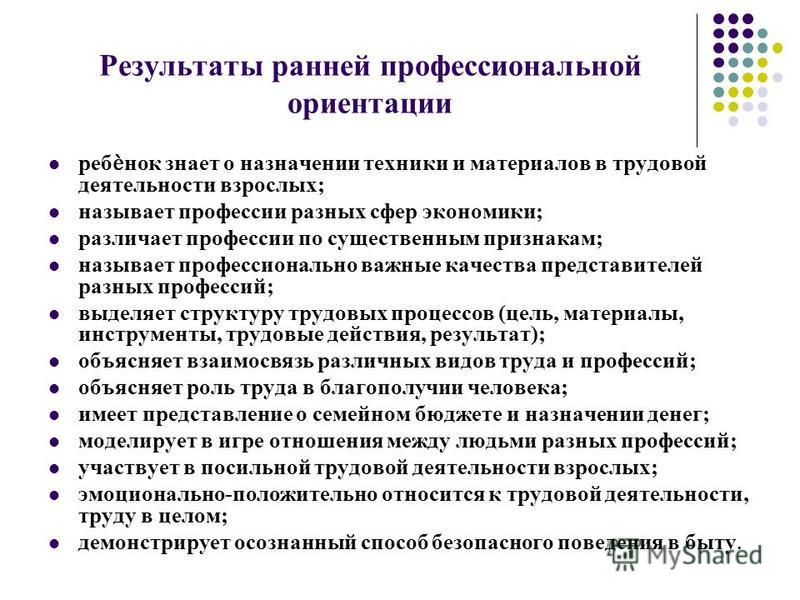Game: the formation of preschoolers' ideas in the world of professions Psychological and pedagogical conditions for the development of early child's ideas about professions Prepared. - presentation
Early vocational guidance of a child in adult labor is a condition of his mental development. Career guidance activities for preschool children are components of early vocational guidance, the purpose of which is pre-vocational self-determination of preschoolers. Early career guidance is designed to: give the child an initial and maximally diverse understanding of professions; to form an emotionally positive attitude towards work and the professional world in the child; provide an opportunity to use your strength in the available activities; so that later, in adolescence, the child could analyze the professional sphere more meaningfully and feel more confident when choosing a profession.
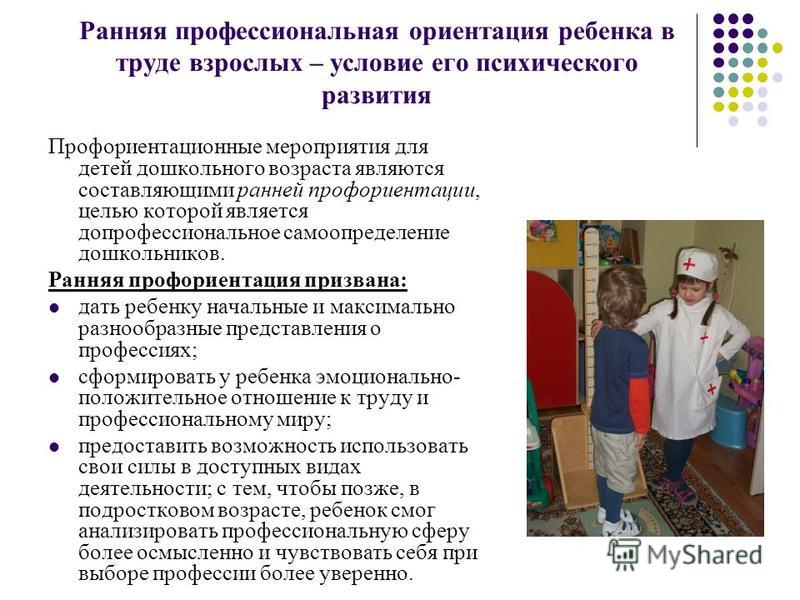
Stages of development of "early vocational guidance" A significant contribution to the development of the concept of "early vocational guidance" was made by Ye.A. Klimov, suggesting the age periodization of pre-professional development: 1. The stage of pre-game - the era of early childhood, up to 3 years old - 2. Stage of the game - the period of preschool childhood, from 3 to 7-8 years
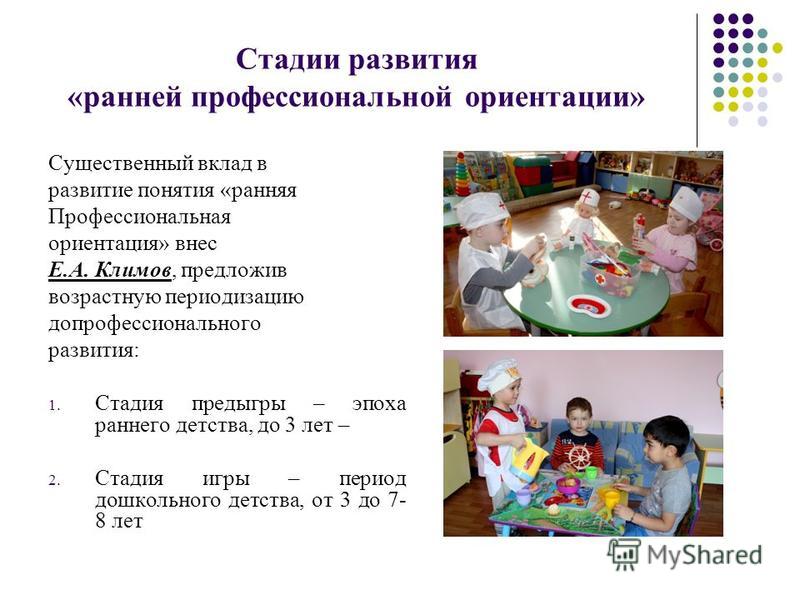
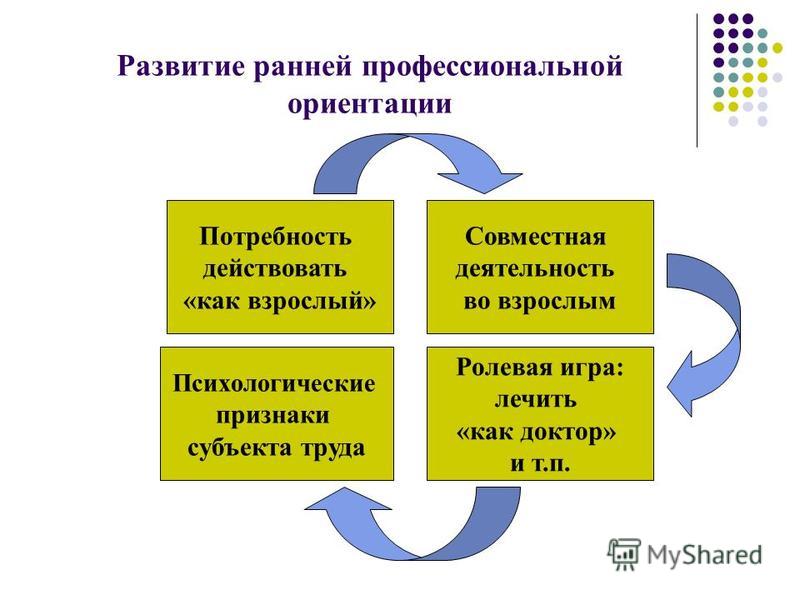
To form initial ideas about some types of adult labor, the simplest labor operations and materials; teach to isolate the work of adults as a special activity aimed at caring for people; to draw the attention of children to positive fairy-tale heroes and characters of literary works who work; develop ideas about the use of safe ways to perform professional activities of people in the immediate environment. Tasks for children of primary preschool age (3-4 years)
Tasks for children of middle preschool age (4-5 years old) to form an idea of the professions aimed at meeting the needs of a person and society; to form an idea of complex labor operations and mechanisms; to form primary ideas about the motives of people's labor; to form ideas about the types of work activities that benefit people and are described in fiction; teach to compare professions; to teach to isolate the goals, the main content of specific types of labor that have a result that the child can understand; to acquaint with the most common types of professional activities related to emergencies.
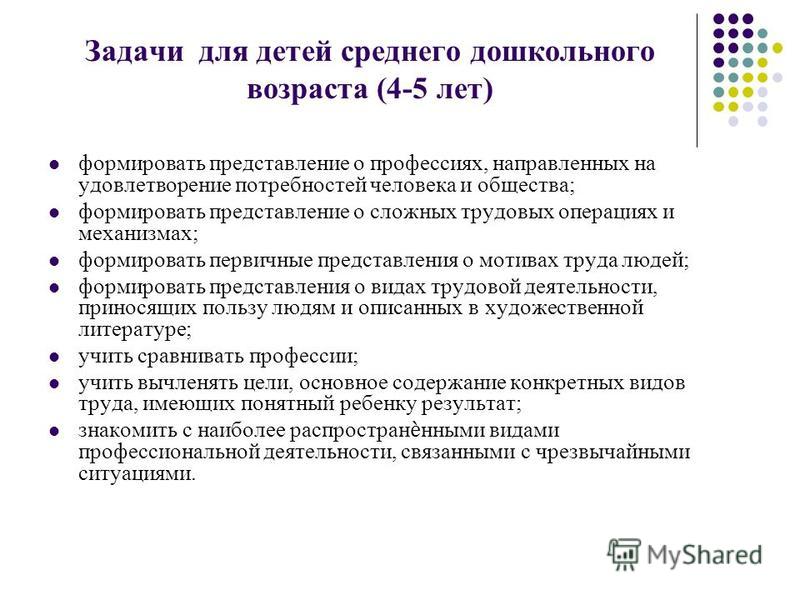
Tasks for senior preschool children (5-6 years old) to expand and systematize ideas about adult work, material and non-material results of work, its personal and social significance; to expand and systematize ideas about various types of technology that facilitate the performance of human labor functions; to form initial ideas about labor as an economic category; to form ideas about the various aspects of the labor activity of children by means of fiction; systematize knowledge about the work of people at different times of the year; to acquaint people of creative professions with work: artists, writers, composers, masters of folk arts and crafts.
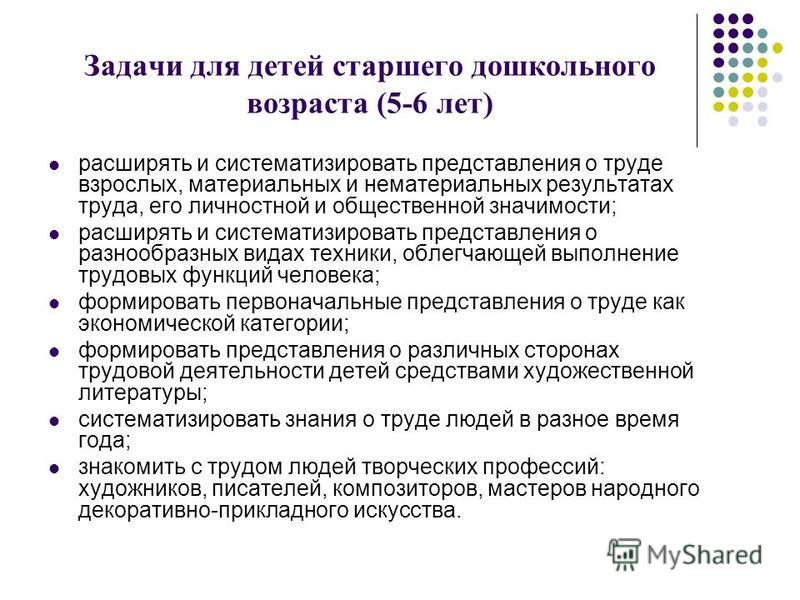
Tasks for children of senior preschool age (6-7 years old) to expand and systematize ideas about various types of work of adults associated with meeting the needs of people, society and the state (the goals and content of the type of work, some labor processes, results, their personal, social and state significance, ideas about labor as an economic category); expand and systematize ideas about modern professions; to expand the understanding of professions related to the specifics of local conditions; to expand ideas about the role of mechanization in labor, about machines and devices - human helpers; to form an idea about the types of production labor (sewing, food production, construction) and service labor (medicine, trade, education), about the relationship between the results of the activities of people of different professions.
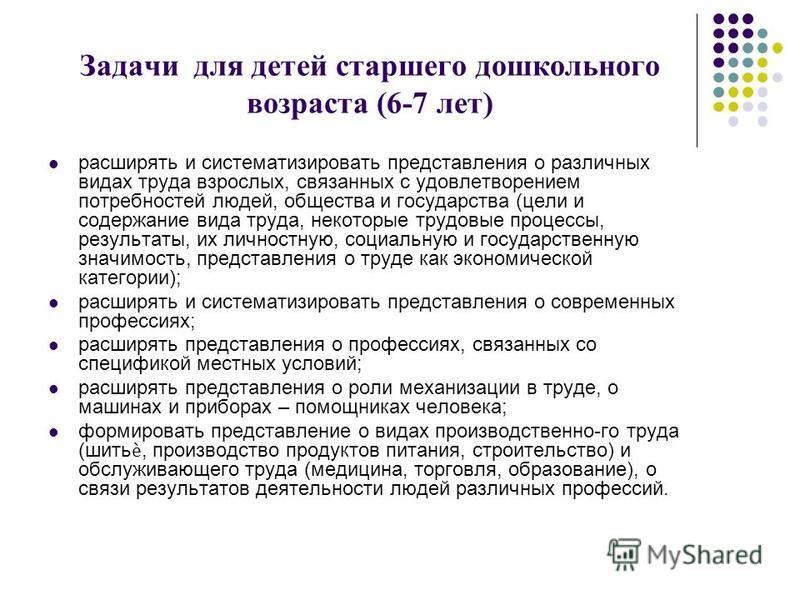
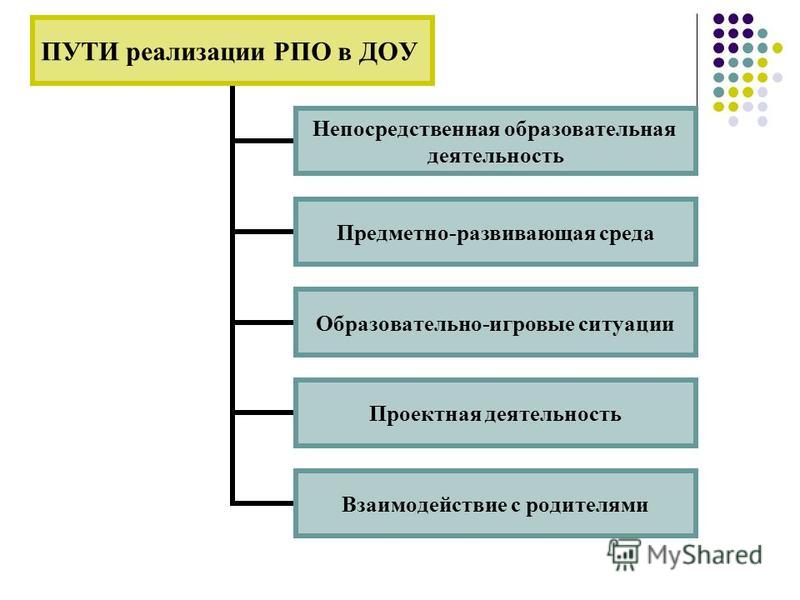
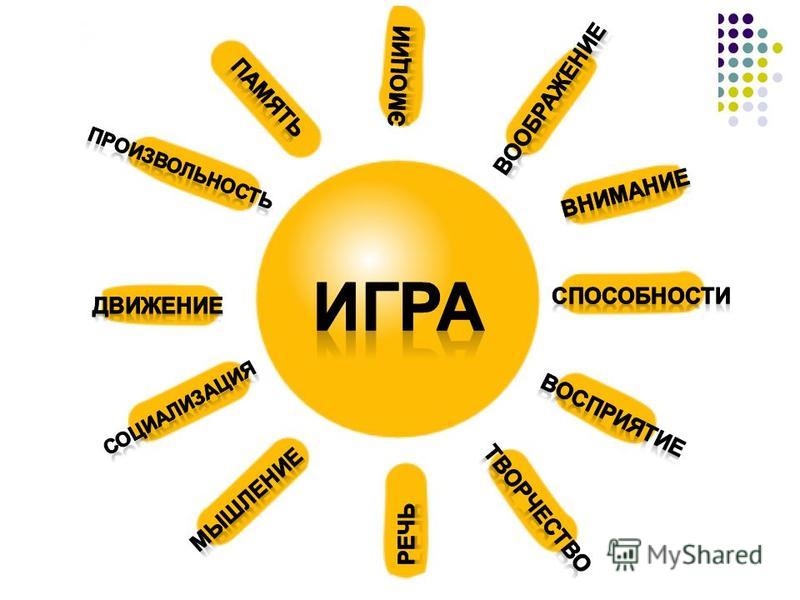
Special attention should be paid to the assimilation of the following by children: the concepts of “profession” (what is this?), “Representative of the profession” (what is the name of a person in this profession?), “Tools of labor” (how does a person work?), “Labor actions” (what does a person do? ), “The result of labor” (what happened?), The social benefit of labor (who needs it?). attitude to work
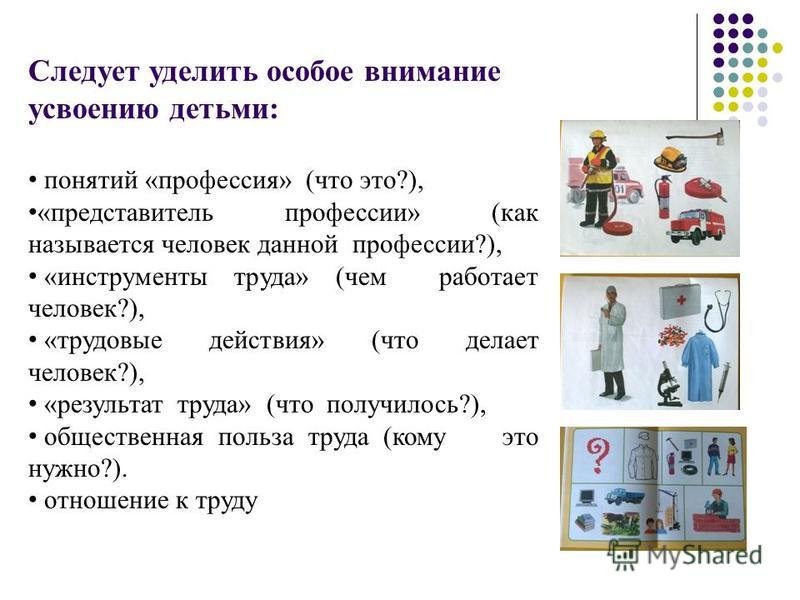
Game is the leading type of activity in preschool age. Didactic games model the structure of the labor process: the purpose and motive of labor, the subject of labor, tools and equipment, labor actions, the result of labor. In preschool pedagogy, didactic games are divided into three main types: games with objects; board games; word games.
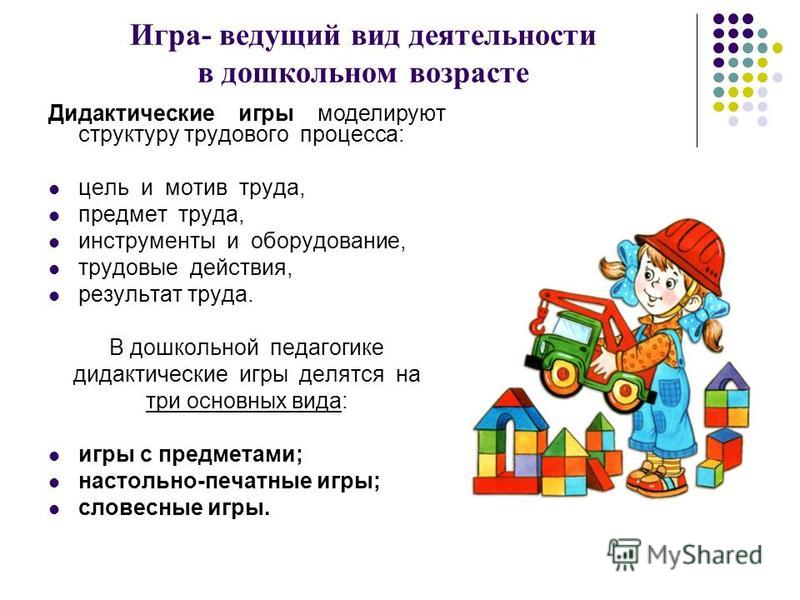
Games with objects We use toys and real objects to introduce adults to the professions. "Collect the cook's set" "Who was here and what they forgot", "Let's dress the doll for work", "Let's collect the toolbox". A child is important about an object that will push him to play: binoculars, a steering wheel, a handbag, a hat, etc.
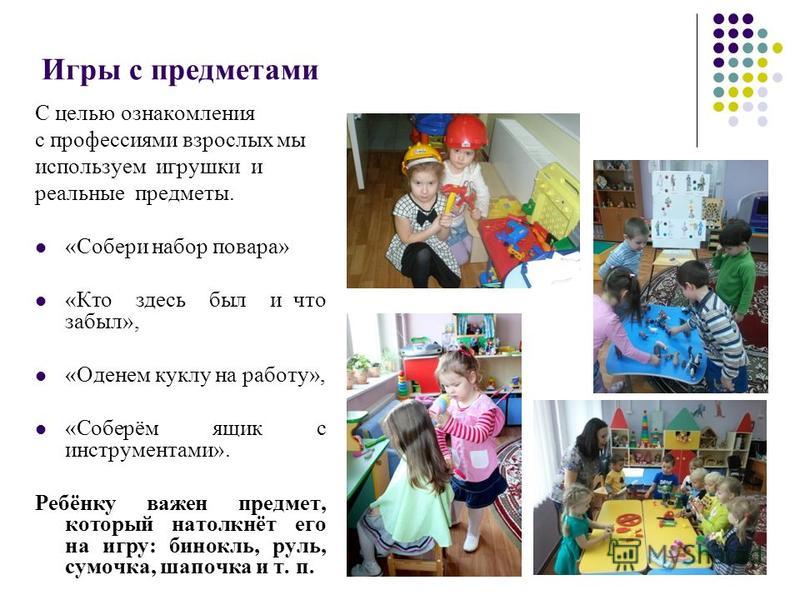
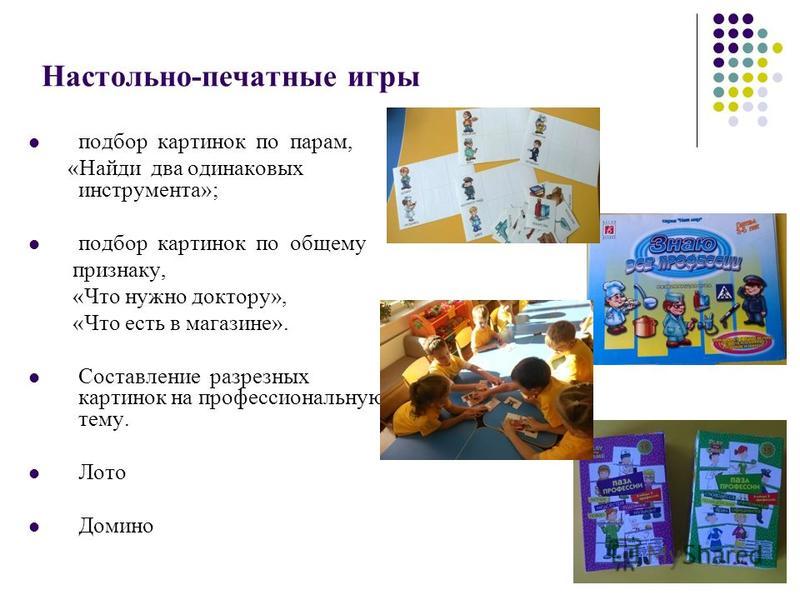
Word games, educational and game situations "The fourth extra", "Guess the profession according to the description" The word chain "Cooking compote" "We will teach you how to wash a cup (set the table, dust off)", "Cheerful cooks", "Let's play in the store". Finger gymnastics Outdoor games
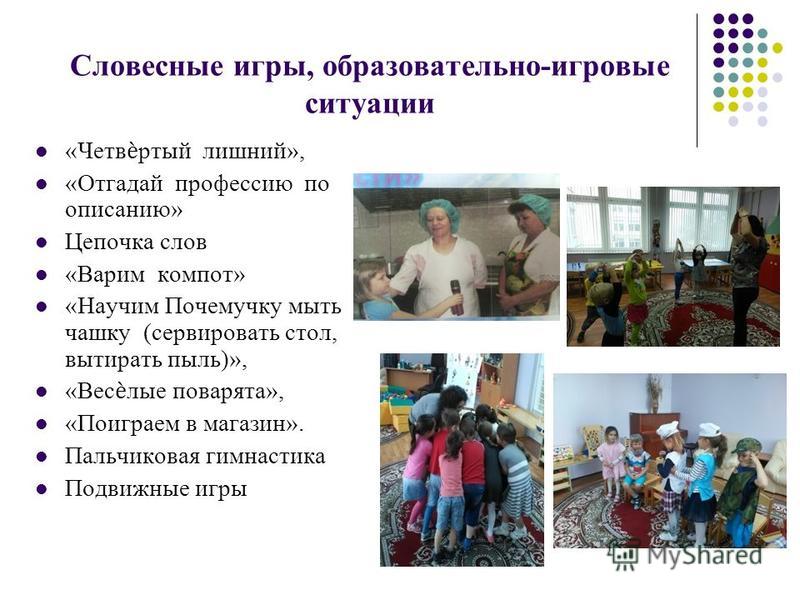
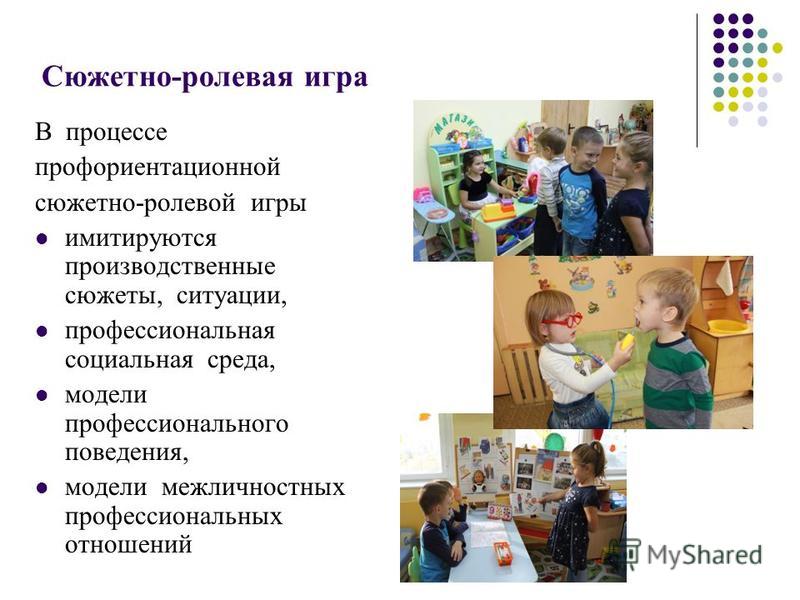
The results of early vocational guidance, the child knows about the purpose of technology and materials in the work of adults; names the professions in different spheres of the economy; distinguishes between professions according to essential characteristics; names professionally important qualities of representatives of different professions; highlights the structure of labor processes (purpose, materials, tools, labor actions, result); explains the relationship between different types of work and professions; explains the role of labor in human well-being; has an idea of the family budget and the purpose of money; simulates in the game the relationship between people of different professions; participates in the feasible labor activity of adults; emotionally positively relates to work, work in general; demonstrates a conscious way to behave safely in everyday life.
